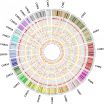(Press-News.org) New York, April 14, 2015 - Randomized clinical trials of new drugs have long been considered the "gold standard" in determining safety and efficacy before drugs, biologics, vaccines or devices are introduced to the general public. However, in the case of a deadly, rapidly spreading, infectious disease with no known cure, such as Ebola, ethical considerations demand that reliance only on RCTs be reexamined, according to a new Target Article now online and in print in the American Journal of Bioethics.
Authors Arthur Caplan, PhD and Carolyn Plunkett of the Division of Medical Ethics in the Department of Population Health at NYU Langone Medical Center, and Bruce Levin, PhD of Columbia University Mailman School of Public Health, Department of Biostatistics, note in their article that "If the goal of conducting trials in epidemic ravaged West Africa is to rapidly find an intervention that cures the infected and blunts the epidemic, then Randomized Clinical Trial designs are not the only or even the best choice. The World Health Organization, Doctors without Borders, and other partners who coordinate trials on experimental agents agree. There are practical reasons why placebo or Standard of Care (SOC)-controlled trials are difficult if not impossible to undertake."
Dr. Caplan adds, "Local governments and communities will not accept placebo controlled trials in the face of a deadly epidemic especially when there is reason to believe that drugs or other interventions are relatively safe. Nor should they when other trial designs are more appropriate."
The authors further note that there are competing ethical concerns when it comes to designing any clinical research study - and clinical trials of possible treatments for Ebola virus are no exception. If anything, they conclude, competing ethical concerns are exacerbated in trying to find answers to a deadly, rapidly spreading, infectious disease. The primary goal of current research is to identify experimental therapies that can cure Ebola or cure it with reasonable probability in infected individuals.
"Pursuit of that goal must be methodologically sound, practical and consistent with prevailing norms governing human subjects research," the authors write. "Some maintain that only randomized controlled trials (RCTs) with a placebo or standard-of-care arm can meet these conditions. We maintain that there are alternative trial designs that can do so as well and that sometimes these are preferable to RCTs."
In their article, the authors further point out that the guiding methodologic question of clinical trials in an epidemic that has spread out of control is not to test a "null hypothesis" that nothing works in carefully controlled circumstances but, rather, to assess among potentially promising agents, some of which have proven safety records, which stands the best chance of working using - a randomized selection" (RS) trial, which has the primary objective of identifying the "best candidate" for the treatment of Ebola or other deadly diseases among competing options.
"It is particularly important to recognize that testing against the null hypothesis is neither appropriate nor necessary at this point in an out-of-control lethal epidemic," they state. "Instituting alternative clinical trial designs can provide useful information for the elimination or selection of prospective therapies. And that is what morally we owe those who are dying or at grave risk in environments where they have no other realistic means of survival."
"The conventional way of designing randomized clinical treatment trials in the midst of truly horrific epidemics like the current Ebola Virus Disease outbreak are inadequate," Dr. Levin says. "Researchers have an obligation to do better. We have proposed a design--the randomized selection trial--which addresses the moral responsibility to find promising treatments quickly with a design that respects the needs of those whose lives are at greatest risk."
The article provoked a good deal of accompanying commentary, including from leading figures at the FDA and NIH. The authors respond to these comments hoping that decisions about how best to respond in emergencies with new drugs and agents can secure agreement before the next deadly pandemic.
INFORMATION:
About NYU Langone Medical Center
NYU Langone Medical Center, a world-class, patient-centered, integrated academic medical center, is one of the nation's premier centers for excellence in clinical care, biomedical research, and medical education. Located in the heart of Manhattan, NYU Langone is composed of four hospitals--Tisch Hospital, its flagship acute care facility; Rusk Rehabilitation; the Hospital for Joint Diseases, the Medical Center's dedicated inpatient orthopaedic hospital; and Hassenfeld Children's Hospital, a comprehensive pediatric hospital supporting a full array of children's health services across the Medical Center--plus the NYU School of Medicine, which since 1841 has trained thousands of physicians and scientists who have helped to shape the course of medical history. The Medical Center's tri-fold mission to serve, teach, and discover is achieved 365 days a year through the seamless integration of a culture devoted to excellence in patient care, education, and research. For more information, go to http://www.NYULangone.org, and interact with us on Facebook, Twitter, and YouTube.
About Columbia University's Mailman School of Public Health
Founded in 1922, Columbia University's Mailman School of Public Health pursues an agenda of research, education, and service to address the critical and complex public health issues affecting New Yorkers, the nation and the world. The Mailman School is the third largest recipient of NIH grants among schools of public health. Its over 450 multi-disciplinary faculty members work in more than 100 countries around the world, addressing such issues as preventing infectious and chronic diseases, environmental health, maternal and child health, health policy, climate change & health, and public health preparedness. It is a leader in public health education with over 1,300 graduate students from more than 40 nations pursuing a variety of master's and doctoral degree programs. The Mailman School is also home to numerous world-renowned research centers including ICAP (formerly the International Center for AIDS Care and Treatment Programs) and the Center for Infection and Immunity. For more information, please visit http://www.mailman.columbia.edu
Seeking a way to stimulate antitumor responses via the immune system, Steven Fiering, PhD, of Norris Cotton Cancer Center at Dartmouth, has identified the precise temperature that results in a distinct body-wide antitumor immune response that resists metastatic disease. Fiering's team published the research in the paper "Local Hyperthermia Treatment of Tumors Induces CD8+ T Cell-Mediated Resistance Against Distal and Secondary Tumors," which appeared in Nanomedicine: Nanotechnology, Biology and Medicine.
"Mild hyperthermia treatment of an identified tumor, prior to surgery ...
NEW YORK, NY (April 14, 2015) -- The first-ever systematic study of the genomes of patients with ALK-negative anaplastic large cell lymphoma (ALCL), a particularly aggressive form of non-Hodgkin's lymphoma, shows that many cases of the disease are driven by alterations in the JAK/STAT3 cell signaling pathway. The study also demonstrates, in mice implanted with human-derived ALCL tumors, that the disease can be inhibited by compounds that target this pathway, raising hopes that more effective treatments might soon be developed. The study, led by researchers at Columbia University ...
Macrophages destroy bacteria by engulfing them in intracellular compartments, which they then acidify to kill or neutralize the bacteria. However, some pathogenic bacteria, such as Salmonella enterica, have evolved to exist and even grow while within these acidified compartments. Yet, how Salmonella responds to the acidic environment and how that environment affects the virulence of this pathogen are unclear. New research reveals that Salmonella fights acid with acid, by lowering the pH of its own interior in response to the acidification of the Salmonella-containing compartment ...
An unconventional clinical trial design might have advantages over classical trials for testing treatments for Ebola virus disease (EVD), suggests a study published this week in PLOS Medicine. The work of an international team led by John Whitehead of Lancaster University, UK and Ben Cooper of Oxford University, UK, provides much-needed data to inform a debate on the scientific and ethical justification for non-randomized EVD trials that has taken place in the editorial pages of a number of medical journals in past months.
The researchers compared three different scenarios ...
In recent years, research into the benefits of gut bacteria has exploded. Scientists across the globe are examining how these microbes can help improve health and prevent disease.
One of the most well-known of these is Lactobacillus rhamnosus GG (LGG). This strain of bacteria, which is part of many popular probiotic products, has a reputation as a helpful microbe. Researchers have found evidence that it can help with intestinal problems, respiratory infections and some skin disorders. Some research suggests that it may even help with weight loss.
But a key question ...
In research of significance to the world's expanding coastal populations, scientists have found that geology and infrastructure play key roles in determining whether aquifers that provide drinking water are inundated with seawater during a typhoon or hurricane and how long the contamination lasts.
In 2013, Typhoon Haiyan devastated the Philippines, killing more than 6,000 people and destroying nearly $3 billion worth of property. While the country is still recovering from the storm, researchers with The University of Texas at Austin have found that an aquifer on the island ...
PULLMAN, Wash. - A team of international scientists has shown that assigning a dollar value to the benefits nature provides agriculture improves the bottom line for farmers while protecting the environment. The study confirms that organic farming systems do a better job of capitalizing on nature's services.
Scientists from Australia, Denmark, New Zealand, the United Kingdom and the United States describe the research they conducted on organic and conventional farms to arrive at dollar values for natural processes that aid farming and that can substitute for costly fossil ...
As HIV investigators work to control and eradicate the virus worldwide, certain myths or misconceptions about the disease have been embraced, whereas other concepts with merit have been left relatively unexplored, argues American HIV/AIDS researcher Jay Levy, MD, in a commentary publishing April 14 in the journal Trends in Molecular Medicine. He calls on fellow researchers to continue questioning and not to lose sight of alternative strategies that could ultimately lead to a sustainable, long-term solution to HIV infection.
"This paper may be controversial, but people ...
You might think that you can get away with eating fatty foods for a few days without it making any significant changes to your body.
Think again.
After just five days of eating a high-fat diet, the way in which the body's muscle processes nutrients changes, which could lead to long-term problems such as weight gain, obesity, and other health issues, a new study has found.
"Most people think they can indulge in high-fat foods for a few days and get away with it," said Matt Hulver, an associate professor of human nutrition, foods, and exercise in the Virginia Tech College ...
This news release is available in German. Looking after yourself, and trying not to infect others, is a good strategy to prevent disease from spreading - not only if you are a considerate co-worker, but also if you are an ant, meerkat or other social animal, as revealed by an epidemiological model developed by the groups of Professor Fabian Theis from the Helmholtz Center Munich and Professor Sylvia Cremer from the Institute of Science and Technology (IST) Austria. In a Theme Issue of the Philosophical Transactions of the Royal Society B on "The Society-Health-Fitness ...


